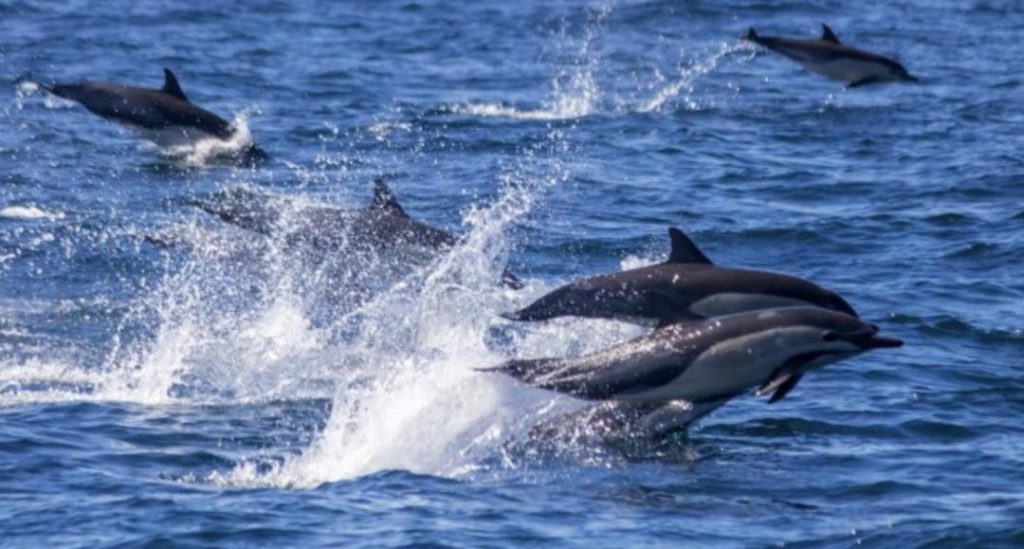
Dolphins & Whales Regularly Socialise with Each Other: Study
In a fascinating study, researchers from Griffith University have discovered that dolphins and whales regularly socialise with each other, engaging in playful interactions that are often mutual. The study, which analyzed videos and photographs of interactions between baleen whales and dolphins, covered 19 species across 199 separate events. The findings provide new insights into the complex and intriguing social dynamics between these marine mammals.
According to the study, the most common interaction observed was dolphins swimming near the whale’s head. This behavior was not only observed in bottlenose dolphins, the most involved dolphin species, but also in other species such as Risso’s dolphins and common dolphins. The researchers noted that these interactions were often playful, with dolphins and whales engaging in games of chase, swimming together, and even playing with seaweed.
The study’s lead author, Dr. Lars Bejder, explained that the findings were unexpected. “We knew that dolphins and whales interacted with each other, but we didn’t expect to see such a high level of socialisation and playfulness between the two groups,” he said. “It’s clear that these marine mammals have a complex social structure that is worth further study.”
The research team used a combination of video and photographic data to analyze the interactions between dolphins and whales. They found that the majority of interactions (71%) were between bottlenose dolphins and humpback whales, while other species such as minke whales, gray whales, and sperm whales were also involved.
The study’s findings have significant implications for our understanding of marine mammal social behavior. “This study highlights the importance of considering the social dynamics between different marine mammal species,” said Dr. Bejder. “By understanding how these animals interact with each other, we can better manage and conserve marine ecosystems.”
The study’s results also have implications for our understanding of the evolution of social behavior in marine mammals. “The fact that dolphins and whales engage in playful interactions suggests that social play may be an important mechanism for social bonding and learning in these species,” said Dr. Bejder.
The study’s findings are also relevant to conservation efforts. “By understanding the social dynamics between dolphins and whales, we can better protect these animals and their habitats,” said Dr. Bejder. “This knowledge can inform conservation strategies and help to ensure the long-term survival of these species.”
In conclusion, the study’s findings provide new insights into the complex social dynamics between dolphins and whales. The research highlights the importance of considering the social interactions between different marine mammal species and provides a valuable framework for understanding the evolution of social behavior in these animals.






